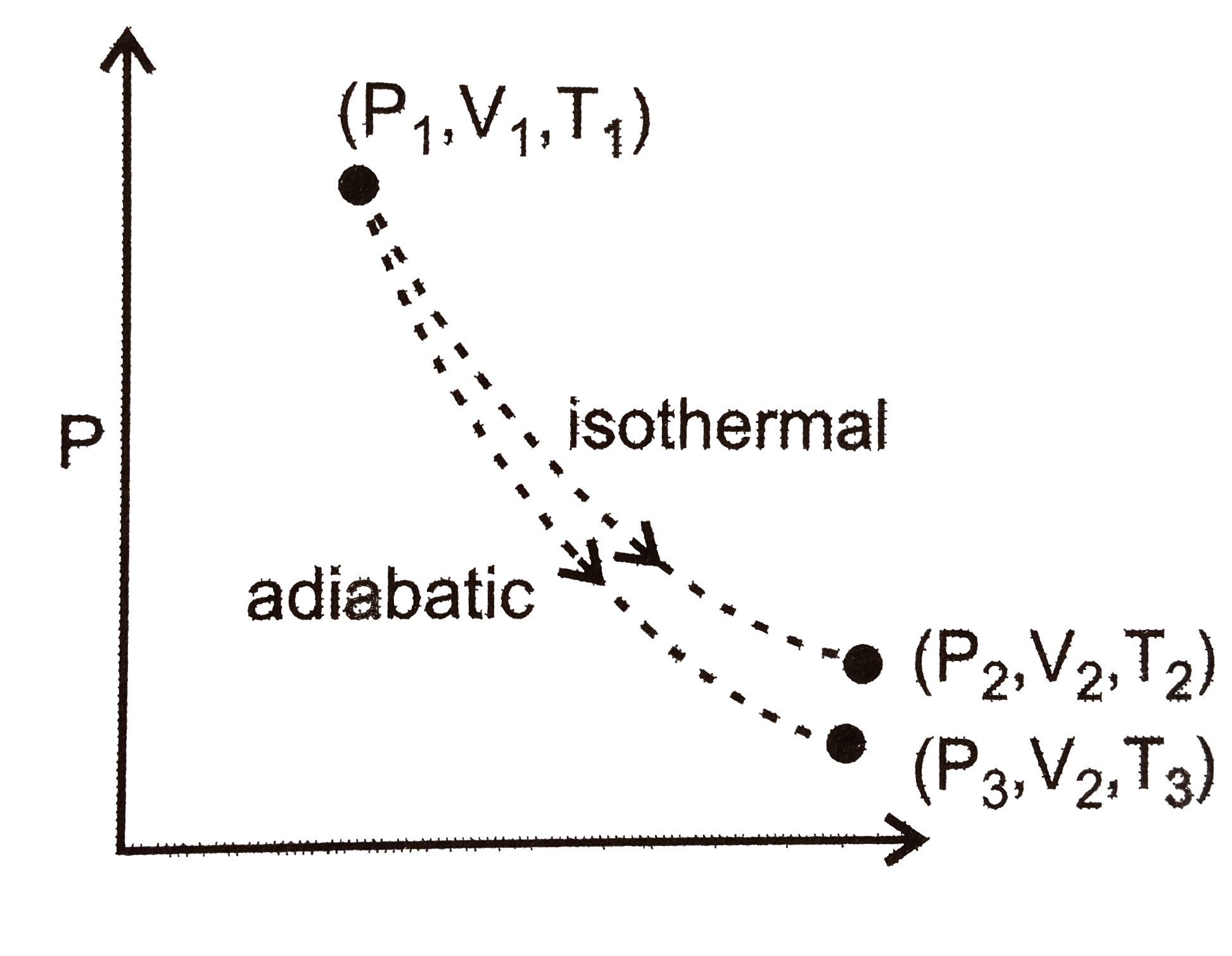Which of the following is correct for free expansion of ideal gas under isothermal condition :-Solution in Gujrati
For isothermal (T = constant) expansion of an ideal gas into vacuum, w=0 since pex=0. Also, Joule determined experimentally that q=0, therefore, ΔU=0
ΔU=q+w can be expressed for isothermal irreversible and reversible changes as follows:
1. For isothermal irreversible change
q=−w=pex(Vf−Vi)
2. For isothermal reversible change
q=−w=nRTlnVfVi=−2.303nRTlogVfVi
3. For adiabatic change, q=0
σΔU=Wad
Topper's Solved these Questions
- BOOK - KUMAR PRAKASHANCHAPTER - THERMODYNAMICSEXERCISE - Section - A Questions ( 6.5 Enthalpies for Different Types of Reactions )6videos
THERMODYNAMICS
- BOOK - KUMAR PRAKASHANCHAPTER - THERMODYNAMICSEXERCISE - Section - A Questions ( 6.6 Spontaneity )4videos
THERMODYNAMICS
- BOOK - KUMAR PRAKASHANCHAPTER - THERMODYNAMICSEXERCISE - Question Paper from Module (SECTION - A) Answer the following questions in very short :3videos
THERMODYNAMICS
- BOOK - KUMAR PRAKASHANCHAPTER - THE s-BLOCK ELEMENTSEXERCISE - Section-D NCERT Exemplar Solution (Long Answer Type)8videos
THE s-BLOCK ELEMENTS
Similar Questions
Explain the standard enthalpy of combustion ΔCHΘ.
11:23View SolutionExplain entropy and spontaneity of reactions.
OR
Explain entropy and spontaneity.01:48View SolutionWhich is not state function ?
03:04View SolutionThe s-block elements are characterised by their larger atomic sizes, lower ionisation enthalpies, invariable +1 oxidation state and solubilities of their oxosalts. In the light of these features describe the nature of their oxides, halides and oxosalts.
02:29View SolutionThe reversible expansion of an ideal gas under adiabatic and isothermal conditions is shown in the figure. Which of the following statement(s) is (are) correct?
 01:51View Solution
01:51View SolutionWhich of the following is correct option for the free expansion of an ideal gas under adiabatic condition ?
01:48View SolutionWhich of the following is the correct option for the free expansion of an ideal gas under adiabatic condition?
05:57View SolutionFor an isothermal free expansion of an ideal gas,
03:07View SolutionWhich of the following is correct for free expansion of ideal gas under isothermal condition :-
04:12View SolutionWhich is the following is the correct option for free expansion of an ideal gas under adiabatic condition.
05:40View SolutionWhich is correct option for free expansion of an ideal gas under adiabatic condition-
View SolutionFor isothermal free expansion of an ideal gas-
03:06View SolutionWhich of the following is correct option for free expansion of an ideal gas under adiabatic condition ?
04:05View SolutionThe reversible expansion of an ideal gas under adiabatic and isothermal conditions is shown in the figure. Which of the following statements(s) is (are) correct?
04:08View SolutionWhich of the following is correct option for free expansion of an ideal gas under adiabatic condition ?
View SolutionWhich of the following is the correct option for free expansion of an ideal gas under adiabatic condition ?
03:04View Solution

